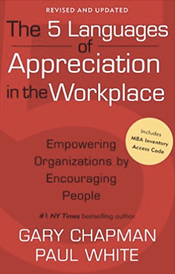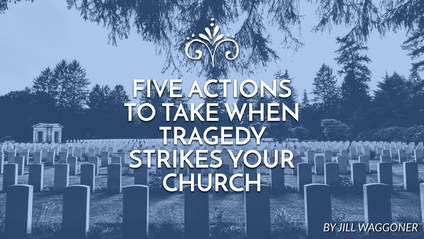 I was standing at the door after church, talking with folks, when a woman who’d been visiting our church approached and blurted, “Can we be friends?” I knew immediately what she meant: she wanted to connect with other women and with the church, because she was in a time of transition and needed a lifeline of relational security. The surest thing, it seemed, was the smiling pastor’s wife who’d greeted her at the door each week. I swallowed hard, trying to think of a response to a difficult and uncomfortable question from someone I didn’t know. In the past, I would have immediately answered, “Yes, of course!,” taken down her number, and then invited her to coffee, not so much because I was a bleeding heart but because I felt guilty if I didn’t do it. After all, I told myself, wasn’t that what a good pastor’s wife would do? I know now that unless it’s prompted by the Holy Spirit, it’s not what a good pastor’s wife would do. Spending time with people to avoid feeling pressure, guilt, or the discomfort of knowing we’ve disappointed someone is not Spirit-led ministry, and it’s certainly not the gateway toward friendship, for either party. In my last post, I discussed how important it is for us, as pastor’s wives, to have a hearty and healthy perspective on friendship. It’s important because it helps us navigate our many relationships, but it’s also important because we have the opportunity to model for other women how to do the same. We not only need a healthy perspective regarding friendship for ourselves; we have the opportunity to teach others a healthy perspective on friendship. Talk about friendship and community When women come to me for counsel, they usually want to talk about issues related to community or friendship. Some are feeling lonely or left out, some are in transition, some need help forming words as they consider approaching a friend who is in sin and some have been hurt by other women. Pastor’s wives, we are often a type of security blanket for other women in church or group settings, especially if we’re open and friendly. I think this is mostly a good thing, because it offers us an opportunity to shepherd and speak into the lives of women around us. We can say hard things or challenge perspectives because we often have worked to build the relational capital. In conversations with other women, as I have opportunity, I often speak about the “big picture” in our church, which I can uniquely see from my vantage point as the pastor’s wife. I tell the older women that the younger women desperately want to know them, even though the younger women may not know exactly what to ask or how to approach them. I tell the younger women, much to their surprise, that the older women can relate to their fears and insecurities. I challenge perspectives regarding age, marital status, race and educational choices—all the things that keep women apart because they assume they’ll have no commonalities. I challenge assumptions, trying to teach giving others the benefit of the doubt. Being a type of security blanket for others, however, can be a bad thing if we think of ourselves as the answer to every problem. If someone is not connecting within the church or has been hurt, it’s easy to slip into “fix it” mode and feel responsible for that person’s well-being. We may began to feel we have to include everyone in everything we do or that we need to constantly be the “giver” and never the “receiver.” Again, we have opportunities here. The opportunity comes through refusing to be the all-knowing, all-powerful, all-present Christ, because we aren’t and only hurt ourselves and others when we try to be. In other words, much of our opportunity for teaching others comes through disappointing people, and that opportunity is for the person to find their hope and comfort first and foremost in the Lord. In conversations with women, we can voice these truths in gentle and loving ways. I often have to help people see that hurt in relationships is inevitable, no church is perfect and each person can make choices and take responsibility for pursuing deep community. They need to know that, in fact, friendships and connection within the church takes persistent intentionality over time. Connect others I’m not advocating a cold-hearted approach to women in our churches. Not at all. I am, however, advocating for pastor’s wives to not try to be everyone’s all-in-all. The way we avoid being the all-in-all is to personally connect with those the Holy Spirit is nudging us toward for discipleship and friendship and then, for all others, use our influence to connect other women with one another.
The possibilities for connection are ongoing and endless, and by intentionally connecting others, we move from being the overwhelmed hub of a wheel to being a part of the living, growing body of Christ. With the woman at the door requesting my friendship, I tried to remember my own advice. I smiled and said, “I’d love to invite you to the small group that meets in our home.” I wrote down the details on the bulletin and handed it to her, and although later I felt a twinge of guilt at not running to rescue her, I realized that instead of accepting responsibility for fixing her situation, I’d put the responsibility for her community where it belonged: with her. I’d opened the door. Then I prayed she’d walk through it. Discussion Questions1. How would you answer the question, "Can we be friends?" if it was asked of you at the next Sunday church service? 2. What is your take on Christine's comment, "We have the opportunity to teach others a healthy perspective on friendship?" Have you ever thought about friendship and the pastor's wife in that way? 3. What is your perspective on friendship and the pastor's wife?  Christine is wife to Kyle Hoover, mom to three energetic boys, and the author of The Church Planting Wife: Help and Hope for Her Heart and From Good to Grace: Letting Go of the Goodness Gospel. In 2008, their family planted a church in Charlottesville, VA. She enjoys encouraging ministry wives and helping all women apply the gift of God’s grace to their daily lives. Christine offers fresh doses of biblical truth and grace on her blog, GraceCoversMe.com. More from this author
0 Comments
 “Are you saying no because of your weight?” Those words caught me off guard and stung. I’m always amazed at the freedom some feel to say what they do. Rather than respond with a full-frontal attack, I used gentle words so I could hide the hurt. “No, I just don’t want ice cream right now. Thanks, though.” In that moment—at a dinner with old friends that should have been filled with joy and celebration—I found myself in a very tangling situation. I put on a brave face and pushed through. The last thing I wanted to do was ruin the evening for everyone else. But honestly, I’m so tired of just pushing through. Even more, I’m frustrated that my self-worth is still so easily tangled. Isn’t there a point in our lives when insecurity shouldn’t knot us up anymore? The shaming voice inside tells me I should be able to overcome it. And so often I agree:
The struggle to see the truth of our worth isn’t new. Chances are you’re intimately aware of the places you don’t feel like you “measure up.” And dare I say it’s a battle we’ll most likely carry to the grave because part of the human condition is wondering if we’re good enough. Those insecurities cause us to take a sobering look at our life to see if we’ve been a success. We want to know we made a difference—our lives, our words, our actions—during our time here. We need to know we matter. So we wonder… Am I raising my kids the right way? Have I been the kind of wife my husband needed? Am I doing enough to create healthy community and love on others well? Am I a good friend? Have I volunteered enough hours? Am I nurturing my relationship with Jesus enough? Do I handle our finances like I should? Am I as encouraging and affirming with my words as she is? Do my opinions and ideas matter? We want to know we’ve contributed to the world in significant ways. Our hope is to know we’re beautiful in our own way, and others see it too. And we need to know that no matter what, we are valuable. So when a careless comment tightens the tangle of worthlessness, it hurts so deep. In my naivety, I thought I’d eventually grow out of insecurities. I assumed being an adult meant the craving for worldly acceptance and approval would stop. But for many of us, we are still getting tangled by the same ole people and the same stupid situations. But here is what I’ve learned. Victory doesn’t mean we’ll never struggle with insecurity again. Victory means that when we feel the knot begin to tighten, we are quicker to see it and faster to take our tangle to God. And even more, God never measures our value by the way we look, what we’ve accomplished, the money we have made, the health of our body, or any other worldly measuring stick. God values us simply because we’re His. “You are the ones who make yourselves look right in other people’s sight, but God knows your hearts. For the things that are considered of great value by people are worth nothing in God’s sight.” (Luke 16:15 GNT) What a beautiful reminder that God’s scales are not the same as the world's. And this scripture offers a powerful warning not to allow the world’s definition of success and beauty be the judge of our value and worth. So how can we learn to see ourselves through the eyes of God?
Because when we do—when we truly untangle—words won’t hold the same power over us anymore. And when someone questions why we’re skipping dessert (or we get triggered in some other way), we’ll remember that God sees the beauty and complexity of our heart… and delights in His creation! Discussion Questions
This blog post was written by Carey Scott for Propel Women in June, 2017. She is an author, speaker, and life coach, honest about her walk with the Lord…stumbles, fumbles and all. She is the author of Untangled, a book where she bravely shares her story of abuse, the insecurities birthed from it, and offers practical advice on how to live in freedom. Carey lives in Northern Colorado with her family. Learn more at CareyScott.org. You can also connect with her on Facebook,Twitter or Pinterest.
Here's a blog from Breeze Church Management Systems. Their slogan is "We're sharing everything we're learning as we help churches simplify." This is a topic we don't always hear about, but is one of vast importance in our churches. How important are your volunteers to you?  Recently, my team embarked on a project. We asked ourselves: “What’s the one thing?” In other words, what’s the one thing that if we focused on it, it could impact everything else in our ministry in a positive way? We wanted to focus. Our desire was greater effectiveness in our ministry. After some research and a series of team debates, we landed on volunteers. In our ministry, our success rises and falls on the effectiveness and longevity of our volunteers. My suspicion is that your ministry is the same. Whether you lead a children’s ministry, student ministry, hospitality ministry or care ministry, the number and quality of your volunteers is a determining factor in your success. So, here’s a question: How do you inspire volunteers towards greater effectiveness? This is a question that we’ve been wrestling with and although we’re not completely where we want to be, I think we’re headed in the right direction. Here are a few ideas. Stories that Need to be Told Over time we’ve come to recognize that nothing inspires like a good story. We’re built to resonate with a good story. This is why we love a good movie or book so much. Because of this we include a segment in each of our staff meetings called, “Stories that need to be told.” During this time, we share stories of impact in our ministry. These stories remind of why we do what we do and they energize us toward our goals. In short, a good story inspires. Recently, we decided to expand this tradition by also starting each of our volunteer meetings with “Stories that need to be told.” The truth is nothing inspires volunteers like a good story — a good story that reminds them of three things:
If you want to inspire volunteers, you, as a leader have to become a story collector. Everywhere you go in your ministry and everyone you talk you, your job is to collect stories and then retell them in ways that inspire the team. Clear Wins Most volunteers battle with a nagging question: “Am I doing a good job?” Everyone hates to fail. It’s part of human nature. We want to win. We want to succeed.  The trouble with volunteering is often that the win isn’t clear. In my experience, when the win isn’t clear, human nature often leads us to believe we are failing. Volunteers who believe they are failing won’t last long. The remedy for this is clear wins. When your volunteers know exactly what it looks like to win, they are very likely to hit the mark. So, in your ministry, what’s the win? Can you clearly and succinctly state the win for each volunteer role? If not, it’s time to gather your team and create one sentence job descriptions for each volunteer role. The clarity will inspire your volunteers. Right Now Something I’ve learned in ministry that is incredibly frustrating and yet liberating is that people only want to know what they need to know only when they need to know it. It’s the principle of “right now.” What I mean by “right now” is “what is immediately next?” It’s perceived as “right now.” In other words, your volunteers aren’t going to catch most of the information that you share concerning what they need to know next month or next semester but they will listen attentively to what they need to know next week, or even better, what they need to know today. For years, I bucked this phenomenon saying things like “people need to plan!” and “people need to care about what is coming!”… and finally, “people are just the worst!”. And then I found myself ignoring most of the communications from my kids’ teachers that didn’t pertain to right now. Sigh. I am those people. Here’s what I’ve learned: The way to maximize your communication impact and keep your sanity is to focus on what matters right now. Why? Because that is when people are actually listening and you are serving them well by helping them prepare for and understand what is coming up next. If you want to inspire your volunteers, adjust your communication and training plan to focus on what is immediately next. Focus on the right now. Targeted Encouragement Two recent conversations led me to a breakthrough in understanding encouragement. The first conversation was between myself and a co-worker. My co-worker told me that when people write him a letter of encouragement it’s basically a waste of time. He doesn’t even really read them. I was like: “Wow. You’re a horrible person!” That was conversation number one. Conversation number two involved my entire team as one of our team leaders led us through a conversation about the book “The 5 Languages of Appreciation in the Workplace”. You probably know Gary Chapman from “The Five Love Languages”. The book follows the same ideas but in the work-place. In the course of our team conversation, we all discovered that everyone on our team has one or two languages of appreciation that really speak volumes and one that really speaks nothing. What I learned from this exercise is that while I may believe I’m appreciating the heck out of one of my teammates, they may not be receiving it at all. Hence, my teammate who could care less about an encouraging note. One of the best ways to inspire your volunteers is to appreciate them really well. It may be worth your while to explore this book and learn more about speaking the appreciation languages of your volunteers. Food The last strategy for inspiring volunteers is the easiest and quite possibly the most effective. Food. That’s right. People love food and when you show up for a meeting and there are great snacks, you know it changes your mindset completely! If morale is low among your volunteers, you probably have a lot of work to do to get moving in the right direction but quality snacks can provide a quick boost. Wrap Up Let’s wrap this up. For us, everything rises and falls on the effectiveness of our volunteers. I’m guessing, you are much the same. So, how do we inspire our volunteers towards greatness? Tell stories, provide clarity around the wins, focus on the right now, target encouragement and for crying out loud feed them! I would encourage you not to become overwhelmed with this list but rather to focus on whatever one thing you believe would create the most immediate impact. Let’s inspire our volunteers! Discussion Questions
This post was written by Aaron Buer on June 14, 2017 for www.breezechms.com.
our failures and mistakes. Some of the most impactful conversations in my life have come when someone I respect says, “Watch out for that pothole!” Here’s what I want to share in this post. I want to share two of the potholes that have tripped me up. My hope is that my mistakes might keep you from falling into the same potholes. So, here we go: Two of my biggest mistakes in ministry. 1. Making It About Me When I entered into student ministry, I discovered a level of personal meaning and fulfillment that I’d never experienced in my life. I felt like I was doing what God created me to do. I loved it. Maybe you’ve been there. Because of this, I went all in. I did everything. I was the teacher, I was the worship leader, I was the counselor, and I was the trainer. I took on all the roles. I spent five years in my first church having the time of my life. The ministry was effective. The ministry grew and I grew. There was just one problem. When I made the decision to leave, the ministry struggled. Why? Because I put myself I the center. I made it all about me — my skills, my presence, my personality. It was all about me. In the years since that mistake I’ve reflected on the magnitude of my failure. My choosing to focus on myself instead of empowering others severely limited the effectiveness of the ministry. I robbed others of the privilege of exercising their gifts and I set the ministry up for a season of struggle when I left. I’d give just about anything to go back and redo those five years. If I could offer a challenge to those of you who lead: Empower others! The lesson I missed was that the scope of your impact is exponentially increased when you empower others to lead. Another challenge that a mentor if mine consistently talks about is this: “What happens to the ministry when you get hit by a...truck?” “Are you empowering and training others so that when the day (planned or unplanned) comes, the ministry will be in a position to keep moving?” Let’s get practical:
Don’t make it all about you. 2. Burying My Frustrations About nine years ago I discovered that I had developed a bitter, caustic and toxic attitude. It wasn’t pretty. It wasn’t life-giving. In fact, it was destructive. I found myself thinking, writing and saying things that shocked me. “Where did that come from?!?” Have you ever been there? If you’ve been in ministry for any length of time, I bet you have. Here’s what I’ve learned about bitterness. It doesn’t flood into our hearts like a tsunami. It doesn’t rush into us, uninvited in a day. No, bitterness seeps into our hearts like a leaky faucet. It happens so slowly that we barely even notice. In my case, the leaky faucet was my frustrations with volunteers, programs, decisions, parents, leadership and specifically, my decision to bury those frustrations. Each decision to stuff my frustrations down was a drop from a toxic, leaky faucet. Eventually, over several years, I finally woke up to the fact that I was angry and bitter. It took a very long time to leech out all this toxicity. There were relational and ministry consequences. The big lesson I learned from this experience is this: There is a cost to burying your frustrations. It’s like drinking poison. I’ve had to learn the discipline of embracing conflict. These days, I’m much more likely to vocalize my frustrations with staff members, volunteers and friends. I have learned that being honest with my frustrations is a far more healthy way to live and lead. So, if you want to survive and thrive in ministry over the long-haul, I would plead with you to find ways to talk about your frustrations. Perhaps you’re sensing the value of verbalizing your frustrations but you’re worried about going too far and being seen as “that guy” or “that girl” who is always negative. Here’s a suggestion: Instead of attacking, ask questions about your frustrations. Here’s what I mean: Go directly to the person who is frustrating you and instead of accusing them of something, ask them questions. For example: “I felt frustrated by your comments in the team meeting, could you share a bit more of what you meant? Maybe I’m not understanding you.” or “You haven’t been showing up on time lately. Is everything ok? Is there something I can help you with?” or “I don’t understand the purpose of this program. Can you help me understand the value?” In my experience, asking, rather than attacking gives you an avenue to share your frustrations without putting others on the immediate defensive. And, if you’re able to regularly discuss your frustrations, you’ll begin to close that leaky faucet and protect yourself from developing a bitter and caustic attitude. Making a Change Let’s wrap this up. Two of my biggest mistakes in ministry have been making it all about me and burying my frustrations. Both of these mistakes led to deep regrets and seasons of ineffectiveness. Discussion Questions
My church body is currently in the midst of one of the greatest tragedies I’ve ever seen. Our community is suffering, mourning and asking difficult questions. It’s been one of the most exhausting weeks we’ve ever experienced in ministry. In many ways, we have felt unqualified for the task before us. Yet, my husband faithfully visited grieving family members, counseled church members in office and by phone, led our church staff through their sorrow and preached a funeral—all in a span of five days. As a pastor’s wife, when tragedy strikes your church body, it strikes your husband’s heart and mind. In the overflow, it strikes your home. When so many have experienced a personal loss, your sufferings might be overlooked during a time of crisis. Rightly so. However, it does not diminish the difficulty of the days for you and your husband. As we weather this current storm, we are clinging to truth in order to minister well and take care of our own bodies and souls. I pray these five actions we're taking provides you encouragement in whatever you also may be facing. 1. Recognize the spiritual battle. Begin with Ephesians 6. Every tragedy involves people. At times, it’s easy to see a person as an enemy that caused your sorrow. It's better to avoid this temptation. The truth found in Ephesians 6 allows us to remove antagonists and protagonists from the narrative and rightly focus our eyes on and prayers against the devil’s schemes. "Put on the full armor of God, so that you can take your stand against the devil's schemes. For our struggle is not against flesh and blood, but against the rulers, against the authorities, against the powers of this dark world and against the spiritual forces of evil in the heavenly realms. Therefore put on the full armor of God, so that when the day of evil comes, you may be able to stand your ground, and after you have done everything, to stand" (Ephesians 6:11-13). 2. Soak in the gospel. My husband and I have read and re-read Romans 8 together. Its reminders of what Christ has done for us, that the Spirit is alive in us and of how the Spirit and Christ intercede for us offer such sustaining grace. No matter what we may face, “neither death nor life, neither angels nor demons, neither the present nor the future, nor any powers, neither height nor depth, nor anything else in all creation, will be able to separate us from the love of God that is in Christ Jesus our Lord” (Romans 8:38). And this too is what we have to offer others in their grief. As C.S. Lewis wrote in the introduction of The Problem with Pain, “when pain is to be borne, a little courage helps more than much knowledge, a little human sympathy more than much courage and the least tincture of the love of God more than all.” 3. Create temporary boundaries. When your church body is in the midst of crisis, many are affected. Everyone and everything feels urgent. However, there are logistical and physical limits to you and your husband’s ability to respond to all requests for counsel while still maintaining your own rest and emotional energy. Likely you and your husband will need to set boundaries with people for a period of time in order to minister to those truly affected. Tragedies will reveal those who are ill-equipped to handle trials. You will need wisdom to discern who they are and set boundaries. 4. Rest. My husband and I have done everything we can to rest well these days including cancelling some morning appointments and leaving housework undone. Some evenings, my husband turns off his phone for a few hours to be with our children. We do this because we know we will need physical strength to sustain our emotional strength. Even though I spend most of my days at home, I ask for help on weeks like this. I call the sitter. I order take-out. I simplify our life as much as possible so that when my husband is home I can give him my emotional energy. "But the Lord is faithful, and he will strengthen you and protect you from the evil one" (2 Thessalonians 3:3). 5. Call in the troops. This might not be able to happen right away, but as soon as possible, I seek to create life-giving scenarios for me and my husband. I invite over friends who are easy and understanding. I sit at a friend’s kitchen table and let the kids play. I ask our parents to come to town. Whatever others offer, take advantage of it. We are made for community and are strengthened by community. In the midst of such sadness, God provided people who encourage me and my husband. We have seen how He sustains us through the prayers of those we didn’t know were praying. We have seen our church body serve and love and encourage each other in ways that blessed us as well. We can see God working in so many lives through this experience, redeeming what was meant for evil. We are left knowing He “will bring it to completion at the day of Jesus Christ” (Genesis 50:20; Philippians 1:6). Discussion Questions
repetitive, and others completely exhausting. It’s not that we don’t love what we do, but the pressure of performing is almost too much to bear. Sweet fellow sisters, can we all take a deep breath for just a moment? Let me look you in that beautiful face and tell you, “You are more than enough through Christ!” You don’t just barely squeak by on the “approval meter.” You are altogether more than enough! These words, to me, feel like rain on a parched land. They make me inhale, not just deeply in, but exhale out as well. I am more than enough . . . We can put that unicycle away now. Honestly, I can blame a million things, people, or places for the pressure of performance in ministry that I’ve felt along the years, but recently I’ve discovered that most of the pressure has come from within. I’ve exhausted myself trying to strive to keep it all together. My “doing” has trumped my “being,” and I’ve been left trampled in return. Last year, God asked me to enter a year of rest. The longer story may be how hard it was to finally comply, but I went through a complete and total undoing the first several months. Taking a break from the juggling act was killing me because I have now discovered it’s where I had for so long found my worth. Who am I if I’m not doing all these things? What worth do I have if I’m not helping or leading something? I’m surely just a giant disappointment—to any and everyone, but especially the One who called me. Or was I really called? In all honesty, approval grew silent from all in my life but a few entrusted souls—until heaven suddenly got louder. It was as if His applause was going wild over my being. For the first time in my life I was discovering what it meant to be loved and valued “just because!” I had become excellent at being a doer, but forgotten to be a daughter. One of my favorite passages about the Father is when He wildly and proudly exclaimed over Jesus, “This is my beloved Son; with Him I am well pleased” (Matthew 3:17, NIV). Jesus hadn’t begun His public ministry yet; no one knew His name or followed His miraculous feats—but His Father was so proud and so pleased. Just because. His pleasure and approval in my life is overflowing, and I’ve learned to just calm down. I’m living, and doing, and walking out of a place of rest these days. No longer do I feel the tremendous pressure to perform, to get it right, to keep the balls flying high. I’m learning to just wear one hat—the hat of “sonship.” It was a process which required a whole lot of undoing and maybe squirming for a bit, while people couldn’t understand why you’re no longer “doing” that thing, but it’s worth it. My closest friend once told me as I struggled to let some things go, “Sons don’t put on a show; they live wildly from acceptance.” The pressure’s all off now. We only have one set of eyes to please—and He’s already crazy about us! Discussion Questions:
But, those who have not been so fortunate, may still be seeking approval from authority figures even as adults, never quite feeling they measure up to others around them. Words kill, words give life; they are either poison or fruit . . . you choose (Proverbs 18:21, MSG). If we are honest, even the best parents can give a mixture of blessing and cursing, healing and hurt within moments. Florence Littauer, author of Silver Boxes, inspires us to weigh our words knowing the value of encouragement and the pain caused by criticism. She shares an illustration of how many building blocks it takes for a child to construct a castle, yet all it takes is one kick to knock them all down. I was challenged that even when giving so many compliments and words of support, all it took was one sharp word of correction and my children would experience pain. I am not saying we should not give instruction or discipline, but we can ask God to show us how to encourage positive behavior rather than focusing on the negative. Watch the way you talk. Say only what helps, each word a gift (Ephesians 4:29, MSG). ...In the Old Testament, God tells Abraham that his offspring will be instruments of blessing to the whole world both in their deeds as well as with their words (see Genesis 12:3; 18:18; 22:16-18). From these early examples, the power of blessing began to develop, and we see it became a practice for generations. Their very names were often used as a form of blessing and prophetic promise based on the meaning of each name. This was evidenced by the names Zelophehad gave to his five daughters, declaring their individual gifts and abilities which he prophetically spoke over them (Numbers 27:1; Joshua 17:3-6). A patriarch’s final blessing was important in biblical times as a matter of inheritance rights. In addition, some final blessings included prophetic statements that revealed God’s supernatural power at work in and through those that received the blessing. ...The principle is clear: God has given parents and grandparents the privilege and authority to speak blessing over their children and, with that blessing, to advance life, health, growth, joy and self-confidence! We need to learn to incorporate this privilege as a dynamic aspect of raising our children and blessing them in every way we possibly can. In the same way we are admonished to speak blessing over the next generation, we also feel that God is pronouncing His blessing over each one of us in a powerful and prophetic way, blessing our lives and our future. As a spiritual leader to the women placed under my care, I speak God’s blessing over your lives and His favor for you to be used mightily in these last days...read more
Discussion Questions
Have you heard the old joke that ministry would be great if it weren’t for all the people? Be honest, have you ever thought this was true? You don’t have to be in ministry for long to realize just how personal this life is. We work with people—sinful, fallen, imperfect people. We work with people who will sometimes hurt our feelings. And we, in turn, will hurt theirs. We live, work and play with the people in our churches. We pour into their lives, and they pour into ours. We are with them during their most vulnerable seasons, ones of birth, illness, victory and death. People will hurt your feelings. When that happens, you have a choice. You can either take it personally and seek to inflict hurt in return, or you can choose to respond as God commands us in Ephesians. “Be completely humble and gentle; be patient, bearing with one another in love” (Ephesians 4:2). Let's take a closer look at the three biblical responses found in Ephesians. 1. Be humble and gentle. Being humble means taking ourselves out of the spotlight. I love how the dictionary defines humility as “freedom from pride or arrogance.” Pride and arrogance only exist to enslave us to ourselves. Through pride and arrogance, we see all the ways we are overlooked and the ways our husbands or children have been hurt. Being humble is being free from self. In commanding us to approach others with humility and gentleness, God is freeing us to love them regardless of what they have done to us. 2. Be patient. We work with real people—people who are flawed and sinful but who are hopefully on their own journey to holiness. As we lead them, they will mess up; so will we. We need to be patient with one another, remembering that we are all tempted, that we all sin and that none of us will reach perfection until we see Jesus. We need to give ourselves patience and extend it to the people with whom we minister. 3. Bear with one another in love. Why did you feel called to ministry? I hope your answer includes a love for people and a desire to lead them to know and love Jesus. When ministry becomes difficult, we need to remind ourselves of why we began in the first place. We are commanded to “bear” with one another. The Lord knows it is going to be a struggle for us to love one another, but He will give us the grace to do so. A few years ago, we transitioned from one ministry position to another. I had served in several areas in the church we were leaving, and I felt like God must be growing me for something similar (and if I am honest, bigger) in the new ministry. But those were not the plans God had for me. I felt overlooked and unwanted. No one seemed to see how I could contribute in our new ministry position, and I felt like I was wasting the abilities God had grown in me. My feelings were hurt, and there were times I took it out on those God had chosen to use in the areas I wanted (in my selfishness) to work. As I looked back on that season of ministry, I saw God was taking away my plans and desires so He could give me His desires and grow me in new ways. Whatever hurt you are facing in your current ministry position, I want to encourage you that God is not going to waste this pain. He is going to grow you into a better servant and minister for the gospel, if you will yield to His teaching. How we respond to those who hurt us matters. We are sharing the gospel through our actions by forgiving our offenders in humility and gentleness and by showing patience and love with those we serve. We don’t take things personally because we are super-Christians, but we do so through the enabling of the Holy Spirit because we desire to grow in godliness.  This blog post was written by Beth Holmes for Flourish - Ministry Wives on February 17, 2017. She is a minister's wife and mom living in Owensboro, Kentucky, who was diagnosed with breast cancer in December 2014. After spending a year learning to be brave through cancer treatments, God is teaching her again how to celebrate in 2016. Join her journey at bethholmes.wordpress.comMore from this author. Discussion Questions1. How do you respond when you are hurt by someone in the church?
2. How is your response different if the hurt comes from someone outside the church, i.e. a family member, a friend? 3. What is your response when you are the one who causes the hurt? 4. What are some positive actions you can take when you are hurt? When you think of emotional maturity what do you think of? Do you think of someone who doesn’t blink an eye at human critique, disappointments, relational hurt, strenuous schedules, or an unexpected bill? Some zen goddess whose inner thoughts are like a peaceful field with wildflowers blowing in the wind? Emotional maturity is not the ability to renounce certain emotions never to feel them again, but the wisdom to understand and manage your emotions appropriately. Controlling the outward reaction to our emotions is not enough. Sure, we want to avoid mishandling our emotions and negatively affecting someone that we are leading. Beyond this, emotional maturity is vital for the soul care of a leader. We can control our outward responses, while negative emotions take a serious toll on the health of our heart and mind causing burnout, discouragement, or much worse...read more
Discussion Questions
One of the best things we can do for our friendships, whether fledging or lifelong, is to become cheerleaders for other women. Don't we all crave a cheerleader friend? Absolutely! We don't want cotton-candy flattery or even the niceties about our appearance or choice of couch pillows, nor do we want silent cheerleaders who think but don't speak words of encouragement. We want a friend of the super athletic cheerleader variety, who exerts enthusiasm and energy in exhorting us on, even as they do their own faith-thing at our side. These kind of friends are rare, and we can't guarantee we'll have a friend like that. But we certainly can be that kind of friend to others. I tell you what: being a cheerleader for other women can be awkward. I know because I am the queen of awkwardness and, frankly, I don't care. I see too many women standing on the sidelines of life feeling like a failure when, in fact, they are walking by faith and adorning themselves with the glorious beauty of good works. They need to know that God's fingerprints are all over them! ...read more
Discussion Questions
|
This is a safe place for ministry wives and women ministers to be renewed, resourced, and build relationships with others just like you.
Search Our Blog Archives by Keyword Below
Categories
All
Archives
March 2024
|















 RSS Feed
RSS Feed